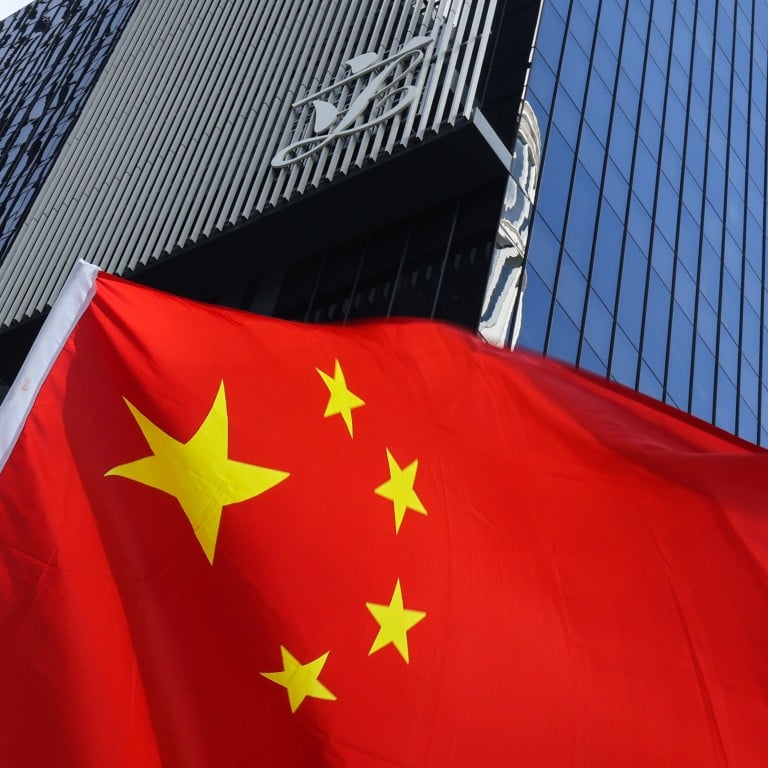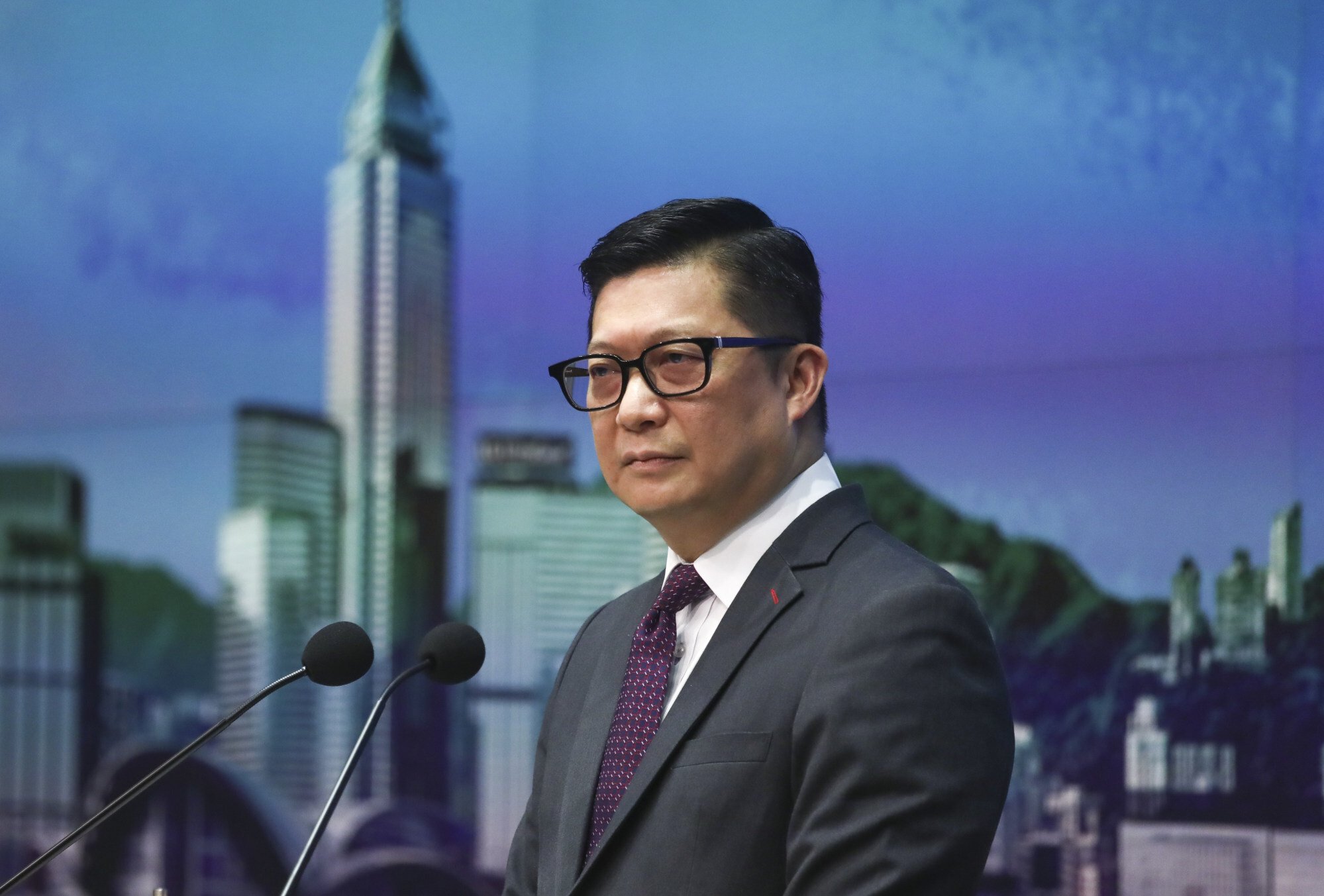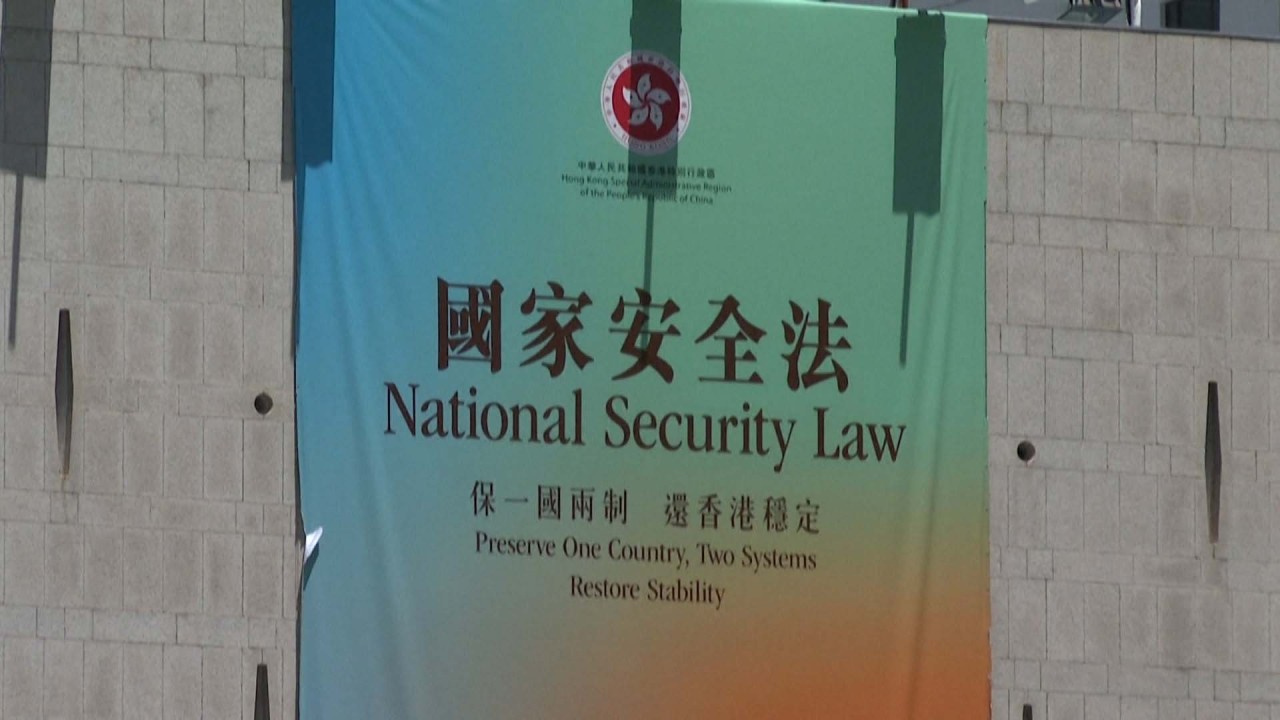
Hong Kong plans to introduce long-shelved Article 23 anti-subversion bill to legislature in second half of 2022, security chief reveals
- Government aims to introduce draft bill to Legco for scrutiny after launching public consultation, Secretary for Security Chris Tang tells lawmakers
- Although Beijing has already imposed security law on Hong Kong, city still has a constitutional responsibility to enact its own version
The Hong Kong government plans to introduce a long-shelved national security bill to the city’s legislature in the second half of the year, the security chief has revealed.
Secretary for Security Chris Tang Ping-keung disclosed the time frame when responding to lawmakers’ questions on espionage in Hong Kong on Wednesday.
But he said the colonial-era ordinance was drafted many years ago and could not keep up with the latest developments. It therefore needed to be enhanced when Hong Kong enacted legislation to implement Article 23 of the Basic Law, the city’s mini-constitution, to safeguard national security and address issues such as the chaos and street violence of the 2019 social unrest that led to more than 10,200 arrests, he said.

“We are actively studying with the Department of Justice on enhancing the Official Secrets Ordinance when we are handling the legislative work relating to Article 23, so as to better guard the city against espionage and crimes related to stealing state secrets,” Tang told the lawmakers in the Legislative Council.
“We aim to launch a public consultation by the end of the term of the current administration and table the draft to Legco for scrutiny in the second half of this year.”
Although Beijing imposed the security law on the city in June 2020 to target secession, subversion, terrorism and collusion with foreign forces, Hong Kong still has a constitutional responsibility to enact its own version.
Article 23 states that the city has a responsibility to enact legislation on its own to prohibit any act of treason, secession, sedition, subversion against the central government, or theft of state secrets, and to prohibit political organisations or bodies of the region from establishing ties with foreign political organisations or bodies.
The national security law does not cover treason, theft of state secrets or local political groups’ ties with foreign political bodies.
First person jailed under national security law drops appeal against sentence
The Article 23 bill was shelved in 2003 after 500,000 people took to the streets in a historic July 1 march.
Lawmaker Priscilla Leung Mei-fun, also a member of the Basic Law Committee, suggested local authorities take reference from the mainland version of the legislation, namely the “Law of the People’s Republic of China on Guarding State Secrets”, in the drafting process.
“The national-level law sets out clear scopes of classified information and state secrets,” she said.
“The colonial-era ordinance should be renamed and amended to adequately reflect that we are countering espionage from the perspective of national security.”
National security: what is Article 23 and why is it back in the spotlight?
Tang added that spying had direct links to local terrorism as common espionage activities included inciting hatred and the use of violence, with the aim of seizing government power and obtaining their own political goals.
Those engaging in espionage “also bred local terrorism by providing support and skills, such as teaching people how to make bombs and obtaining related materials. They also provided a protective umbrella such as giving protection when fleeing abroad”, Tang said.
He added the government would step up public education on national security as well as training for law enforcers in the coming new legislation.


